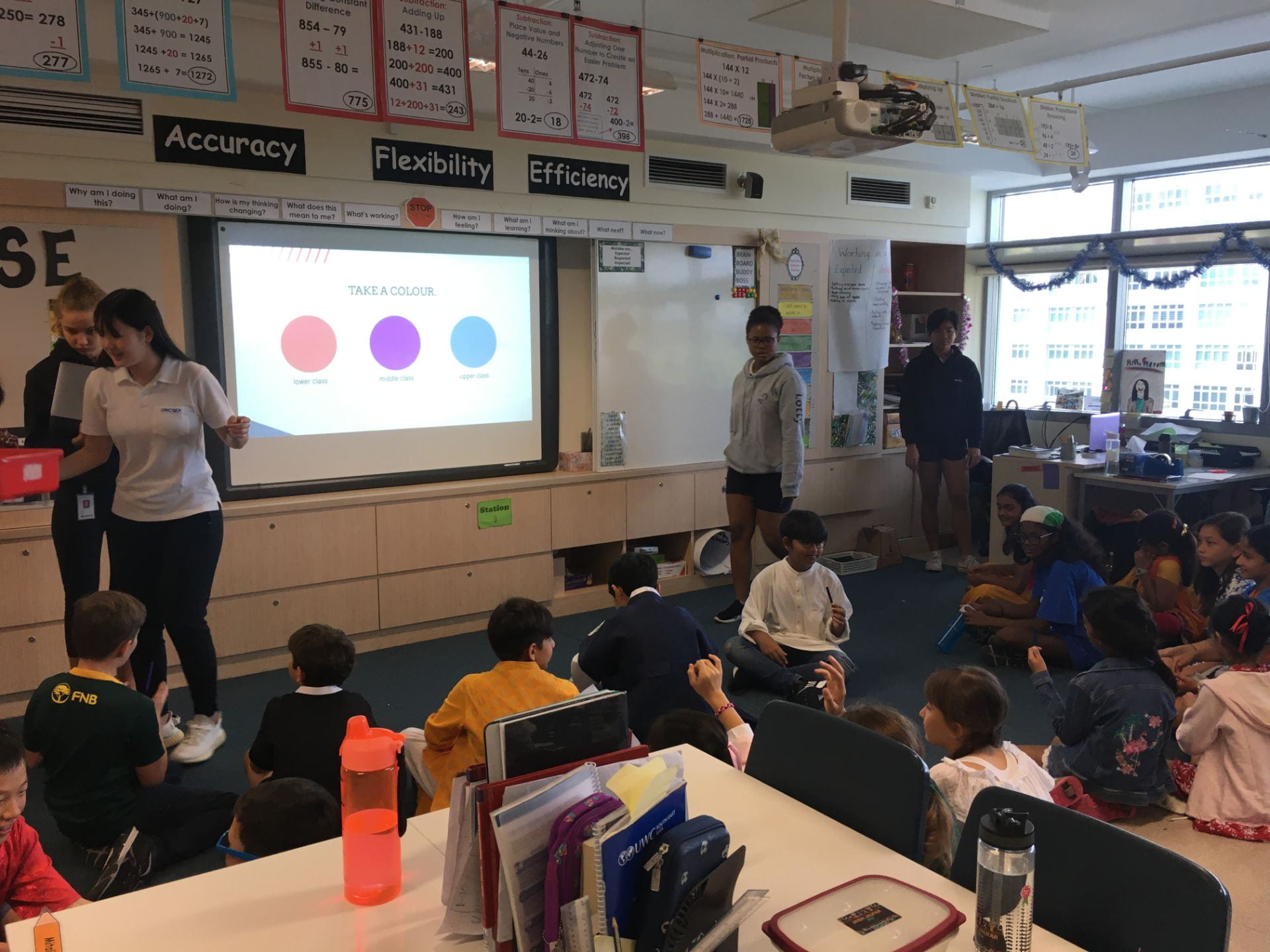On Thursday 12th of December, IFP ran an activity for the Grade 5s in which they did a simulation of classes and wealth. As my group came up with the idea, we, unfortunately, were not able to run the game ourselves but instead ran around taking photos and helping any groups that were having trouble. Essentially, the Grade 11s would split up the Grade 5s into three groups: red, purple, blue. Each represented a different class in society – poor, middle, and upper class. They all got tokens proportional to the wealth of their class too. Then we gave them situations and asked them to choose what to do. Our aim was to help the kids think about the different approaches people have in situations – as some people wanted to keep all the money to themselves while others really wanted to share it – and how they can create conflict in certain situations. The other aim was to get the kids to think about their own privilege – and then we introduced the idea of empathy. The script is here with more details and here is the presentation for the kids with the reflections.
These grade 5s had already done a unit on peacemaking and peacebuilding – so we hoped to play into their preexisting ideas. In order to make it a success, we first ran it on Grade 11s who gave us a LOT of feedback on what to change. This was a very good move as when we ran it with the G11s, it did not go quite to plan and we were able to make the necessary adjustments. For example; as per advice, we edited the cards so they were far more favourable to blue (as in reality). The session with the Grade 5s was actually very successful. The game itself was not the purpose: but rather, the reflection and discussion at the end. We heard responses that were insightful: “we are blue here at UWC, we are so lucky” and “I wonder what is the difference between peace and no war”.
Hopefully, we helped teach these kids about income inequality and a little about themselves. The game would never reveal the flaws in the global system – it was tailored to help the Grade 5s think about their own positions and ideas about such issues.
